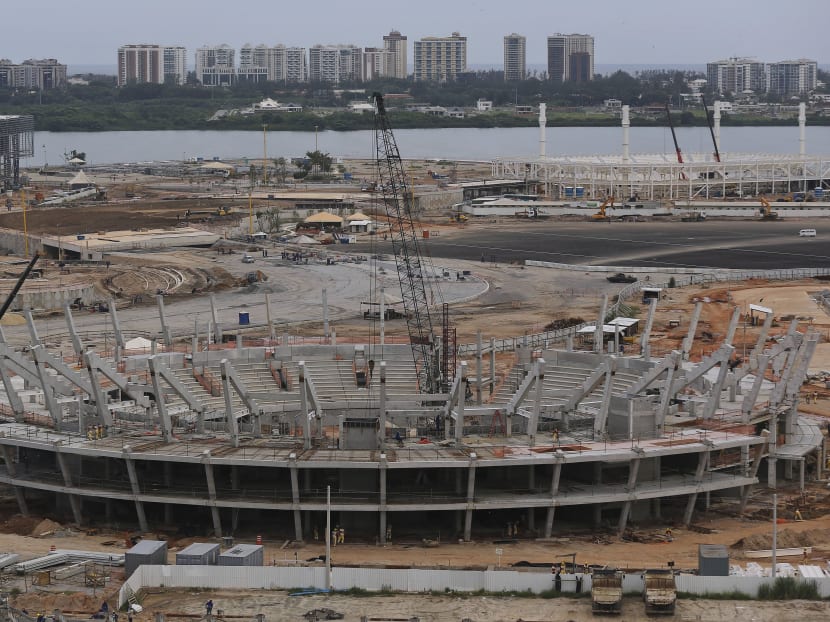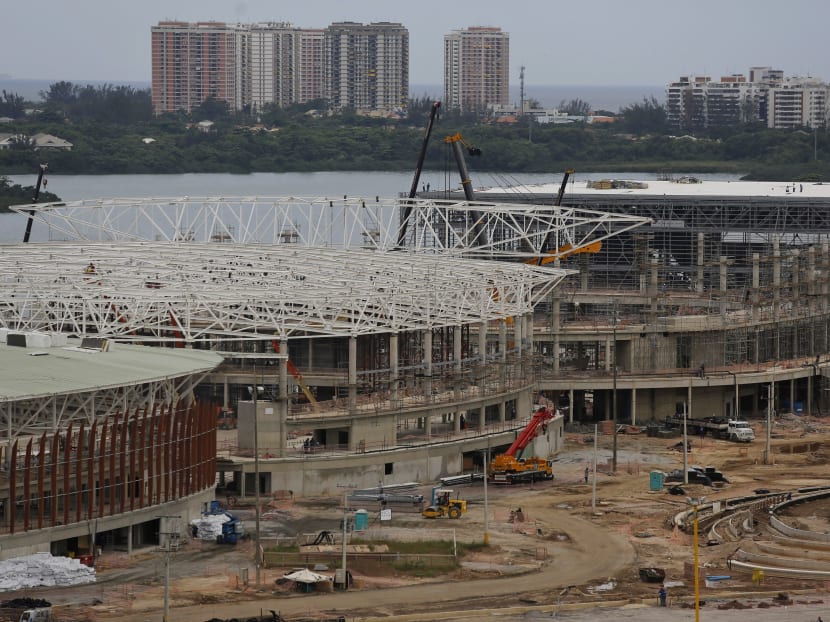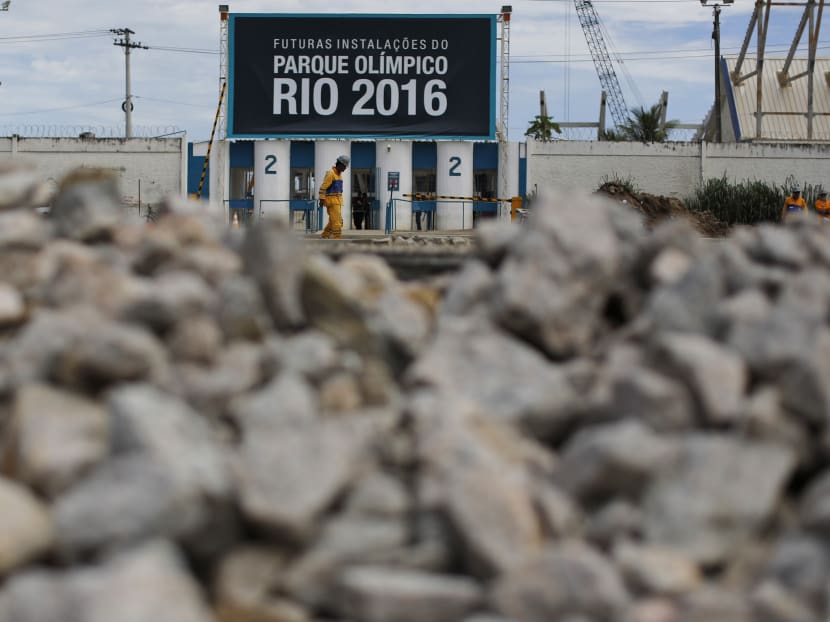Rio Olympics will be ready, though many loose ends remain
RIO DE JANEIRO — No one seriously questions any more whether Rio de Janeiro will be ready for the 2016 Olympics.



RIO DE JANEIRO — No one seriously questions any more whether Rio de Janeiro will be ready for the 2016 Olympics.
A year ago, an International Olympic Committee vice president called Rio’s preparations the “worst” in memory. But since then, work has accelerated as Brazil builds sports arenas, transportation links and hotels.
US network NBC is already airing spots with the headline: “Rio Olympics are coming next summer”.
Despite chaotic planning, Brazil pulled off last year’s World Cup. Olympic preparations also got off to a troubled start. Despite the progress, deadlines are repeatedly described a “tight” or “tense”.
Rio’s preparations will come under the spotlight next week, with International Olympic Committee inspectors starting a three-day tour tomorrow (Feb 23). IOC President Thomas Bach will also be in town, and the IOC executive board will hold a three-day meeting later in the week.
The political atmosphere has soured since the World Cup. The Brazilian currency has lost 35 per cent of its value against the dollar since Germany won the title seven months ago. President Dilma Rousseff’s government has cut services and raised taxes to avoid a revenue shortfall.
Her popularity has also plunged due to a corruption scandal at state-run oil company Petrobras, where investigators say hundreds of millions have been siphoned off in kickback schemes. Brazil is also facing water and power shortages.
The avalanche of bad news could taint Olympic perceptions, especially if struggling Brazilians blame the two mega-events for the hard times.
Brazil spent about US$12 billion (S$16.3 billion) on the World Cup, most on road and rail projects, and many are still unfinished. Brazil also built at least four football stadiums now viewed as “white elephants”.
Rio is spending about US$14 billion on the Olympics — a mix of public and private money — with the bill expected to rise.
Despite the problems, Rio’s faults are masked by its image of beaches and party atmosphere, with visitors expecting a good time — no matter what.
Brazilians pride themselves in dreaming up quick solutions to dodge disaster, and pulling off the World Cup shields the Olympics from similar criticism.
“It’s always going to be a good asset after everything said about Brazil’s World Cup,” Mayor Eduardo Paes said last year. “It’s always going to be a good excuse for us.”
Far from the television cameras, here are some issues that are sure to come up behind closed doors:
TRAFFIC CHAOS
A 16km subway extension may not be fully operational in time for the games. It’s been arduous drilling though a mountain and officials may need a Plan B to get fans from central Rio to the main venue 25km away. Without the subway, vehicles could be wedged into an Olympian traffic jam snaking from Copacabana and Ipanema beaches to the western suburb of Barra da Tijuca, the heart of the games.
NOXIOUS WATERS
Rio state environmental secretary Andre Correa has acknowledged severe pollution in the lagoon that surrounds the Olympic Park and skirts the new golf course. He took a boat ride a few weeks ago through noxious waters, viewing islands of sewage and sludge that appear at low tide. The US$250 million dredging project has been tied up in a dispute. The fetid waters stem from the wealthy and poor alike using the lagoon as a cesspool.
RISING VIOLENCE
Stray bullets injured about 30 people in Rio in January and caused at least five deaths, including a 4-year-old girl and 9-year-old boy. Muggings are also on the rise. The shootouts occur when drug gangs take on each other — or the police. As police have moved in to “pacify” Rio’s favelas, gangs have scattered to unpoliced areas. Olympic security could resemble the World Cup: military police, soldiers and lots of hardware.
ROUGH SAILING
The sailing venue in Guanabara Bay is also filthy with untreated waste and floating debris, posing a competitive and health hazard for Olympic sailors. Brazil’s most respected health research institute said a few months ago it had detected a drug-resistant super bacteria in the area. Nawal El Moutawakel, the head of the IOC inspection team, said last year: “I don’t think we will forgive ourselves if we let the athletes compete in an environment that is not safe and secure.”
MAYOR LAWSUIT?
A public prosecutor is looking into a possible lawsuit against Rio Mayor Eduardo Paes alleging improper conduct centering on concessions the city made to a billionaire developer of the new Olympic golf course. The course, which cost about US$20 million to build, has been embroiled in lawsuits over ownership and charges that environmental rules were trampled. The layout will be surrounded by luxury apartments selling in the US$3-8 million range. AP





